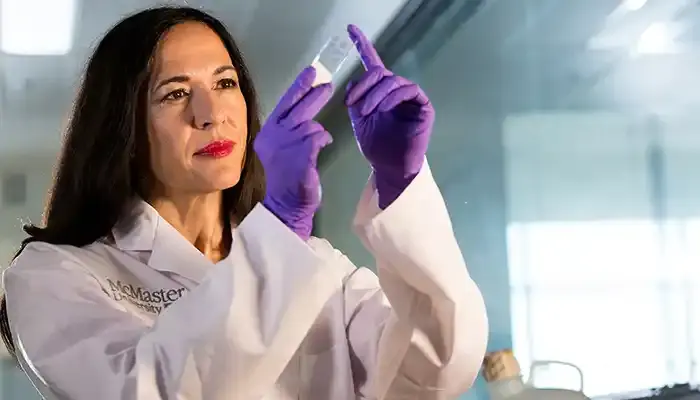
Becoming a scientist is a journey that requires dedication, perseverance, and a love for discovery. It’s not just about earning a degree; it’s about gaining knowledge, experience, and expertise in a particular field of study. But how long does this journey typically take? Let’s explore the timeline and factors involved in becoming a scientist.
Defining a Scientist
Before delving into the timeline, let’s clarify what it means to be a scientist. A scientist is someone who conducts research to advance knowledge in their chosen field. They use scientific methods to gather data, analyze it, and draw conclusions. Scientists can work in various fields, including biology, chemistry, physics, environmental science, and more.
Educational Pathways to Becoming a Scientist
The journey to becoming a scientist typically begins in high school. Here, students lay the foundation by taking science and math courses to build their knowledge base. After high school, the next step is pursuing an undergraduate degree in a scientific field.
High School Education
High school provides the fundamental knowledge and skills needed for further education in science. Students can take advanced science courses such as biology, chemistry, and physics to prepare for higher studies.
Undergraduate Degree
An undergraduate degree is essential for aspiring scientists. Most students pursue a Bachelor of Science (B.S.) degree in their chosen field, which typically takes about four years to complete. During this time, students gain a deeper understanding of their subject through coursework and laboratory experiences.
Graduate Studies
After completing their undergraduate degree, many aspiring scientists choose to pursue graduate studies, such as a Master’s or Ph.D. program. A Master’s degree typically takes 1-2 years to complete, while a Ph.D. program can take 5-7 years or more. Graduate studies focus on advanced research and specialized knowledge within a specific area of science.
Gaining Experience Through Research
In addition to formal education, gaining hands-on research experience is crucial for aspiring scientists. This can be achieved through internships, volunteer opportunities, or undergraduate research projects. Building a strong research background enhances one’s credibility and prepares them for future career opportunities.
Time Frame for Each Educational Stage
The time it takes to become a scientist varies depending on the educational path chosen. Here’s a breakdown of the typical time frame for each stage:
- High School: 4 years
- Undergraduate Degree: 4 years
- Graduate Studies: 5-7 years
Post-Graduate Options
After completing graduate studies, scientists have several options for furthering their careers. Some may pursue postdoctoral research positions to gain additional experience and expertise. Others may seek employment in research institutions, government agencies, or industry.
Factors Influencing the Time to Become a Scientist
Several factors can influence the time it takes to become a scientist, including:
- Field of Study: Some fields may require more extensive education and training than others.
- Research Focus: The complexity and scope of research projects can affect the time needed to complete them.
- Funding Availability: Securing funding for research projects and graduate studies can impact the length of time spent in each stage of education.
Balancing Education and Experience
Finding the right balance between formal education and hands-on experience is essential for aspiring scientists. While academic qualifications are important, practical skills and research experience are equally valuable in the scientific community.
Challenges Faced Along the Journey
The path to becoming a scientist is not without challenges. From rigorous coursework to competitive research opportunities, aspiring scientists must overcome obstacles and setbacks along the way. However, perseverance and determination are key to success in this field.
Importance of Networking and Collaboration
Networking and collaboration play a crucial role in the scientific community. Building connections with fellow scientists, mentors, and industry professionals can open doors to new opportunities and collaborations. By sharing knowledge and resources, scientists can accelerate the pace of discovery and innovation.
Conclusion
In conclusion, becoming a scientist is a rewarding but challenging journey that requires dedication, perseverance, and lifelong learning. While the time it takes to become a scientist can vary depending on individual circumstances and career goals, the pursuit of knowledge and discovery is always worth the effort.
FAQs
- How long does it take to become a scientist in medical research?
- Medical research typically requires extensive education and training, including a medical degree and specialized research experience. This can take anywhere from 8-12 years or more.
- Is it possible to become a scientist without a Ph.D.?
- Yes, it is possible to become a scientist with a Master’s degree or even a Bachelor’s degree in some cases. However, a Ph.D. is often required for more advanced research positions and academic roles.
- What are some alternative routes to becoming a scientist?
- Some alternative routes to becoming a scientist include gaining research experience through internships or volunteer work, pursuing non-traditional educational paths such as online courses or specialized training programs, and transitioning from a related field.
- Can one become a scientist later in life?
- Yes, it is possible to pursue a career in science later in life. Many individuals choose to switch careers or return to school to pursue their passion for science. However, it may require additional time and effort to acquire the necessary education and experience.
- Are there any shortcuts to becoming a scientist?
- While there are no shortcuts to becoming a scientist, there are ways to streamline the process, such as focusing on relevant coursework, seeking out research opportunities early on, and networking with professionals in the field.

Leave a Reply